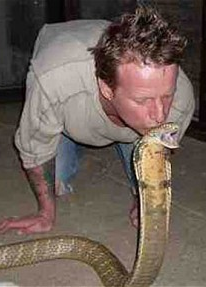There's new information emerging from the slow-motion Marc Hauser train wreck. Carolyn Johnson, "Journal editor questions Harvard researcher's data", Boston Globe 8/27/2010:
The editor of a scientific journal said today the only "plausible" conclusion he can draw, on the basis of access he has been given to an investigation of prominent Harvard psychology professor Marc Hauser's research, is that data were fabricated.
Gerry Altmann, the editor of the journal Cognition, which is retracting a 2002 article in which Hauser is the lead author, said that he had been given access to information from an internal Harvard investigation related to that paper. That investigation found that the paper reported data that was not present in the videotape record that researchers make of the experiment.
“The paper reports data … but there was no such data existing on the videotape. These data are depicted in the paper in a graph,” Altmann said. “The graph is effectively a fiction and the statistic that is supplied in the main text is effectively a fiction.”
Gerry Altmann posted a statement on his weblog with a more detailed account: harvard misconduct: setting the record straight", 8/27/2010). As indicated in Johnson's article, the facts and interpretations that Altmann provides go beyond, to a shocking degree, previously described issues of lost data or disagreement about subjective coding of animal behavior.
Read the rest of this entry »

 Luke Yeomans (pictured) had a king cobra sanctuary in Nottingham, England, and planned to open it to the public this weekend, but instead one of his cobras killed him on Wednesday with a single bite, a hefty injection of neurotoxic and cardiotoxic venom that gave him a heart attack. Sadly, the linguistic signs that he would be killed this way were already present in the record, quite clear in something he had said. I wish someone could have warned him.
Luke Yeomans (pictured) had a king cobra sanctuary in Nottingham, England, and planned to open it to the public this weekend, but instead one of his cobras killed him on Wednesday with a single bite, a hefty injection of neurotoxic and cardiotoxic venom that gave him a heart attack. Sadly, the linguistic signs that he would be killed this way were already present in the record, quite clear in something he had said. I wish someone could have warned him.